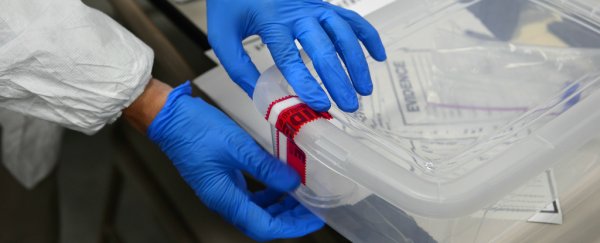At the end of last year, a lab technician working at a New Jersey State Police drug testing unit was accused of fabricating test results, and it's now called into question - and could potentially overturn - the verdicts of almost 8,000 criminal cases that he'd worked on.
Lab tech Kamalkant Shah was caught recording results about a suspected marijuana sample in December without having properly analysing it first - which is known as 'dry-labbing', and is just about one of the worst things you can be accused of doing in a forensic lab.
Shah was immediately suspended without pay, and has yet to face criminal charges. It was the only time during his 10 years at the lab he's been caught doing anything wrong, and he's since retired.
But the New Jersey Attorney General's Office has now identified every case in the state that he'd ever worked on during that time - all 7,827 of them - and will be notifying defence attorneys so they can figure out what to do next.
Exactly what this means for those cases is still up in the air. A memo from Passaic County deputy public defender Judy Fallon to public defenders in February said that the prosecutor's office will now be submitting specimens from cases that are still open for retesting.
For resolved cases where a verdict has already been given, the process is a little less clear. "The Prosecutor's Office has not formulated a policy or protocol yet to deal with these cases," she writes.
But defence attorney Josh Lee told Chemistry World that the accusations against Shah call into question every single test Shah ever worked on. With no further evidence to go on, he said there would be "no other choice" but to overturn any convictions that were based on those results.
"This is a sample that we know passed through the hands of somebody who we know for a fact was dry-labbing – that is the ultimate scientific dishonesty," said Lee.
However, he admits that if drug samples still remain after they were submitted to Shah for testing, they could be re-analysed.
While we wait to hear exactly how defence attorneys will proceed, the situation sheds yet more light on the fact that there are some serious problems in forensic crime labs in the US.
There have been multiple cases of serious misconduct at forensic crime labs over the last few years - some resulting in arrests - and the discovery of another rogue drug lab chemist last year could lead to thousands more retrials.
The non-profit legal group, the Innocence Project, is now asking for an independent review of Shah's case, Rebecca Trager reports for Chemistry World, so they can figure out what went wrong, and how we can stop it from happening in future.
